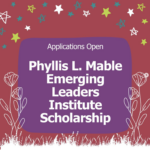by Amanda Best-Noel and Camille Edwards
Global leadership standards require university graduates to have more than the customary academic success if they are to thrive on the global stage. It’s official! Bachelor’s degrees are swiftly becoming commonplace. Hence, there is a growing demand for higher education institutions in the Caribbean to create unique opportunities and memorable out-of-classroom experiences for students to grow holistically and to have the globally competitive advantage required for the world of work. The pressure is on graduates to possess an eclectic mix of strong grades, soft skills and the technical know-how that is attractive to employers.
This is where mentoring comes to mind!
When we begin to think about mentoring; we think of the multiplicity of interpretations and standards for implementation within a higher education Caribbean context. Mentoring is a reciprocal and nurturing process between two individuals, in which a more experienced person serves as a role model who teaches, sponsors, encourages, counsels, and befriends another for the purpose of promoting professional and personal development.
Consistent in mentoring best practice is the need to explore mentorship types, standards and the value of said engagement to the student experience. Our work in Higher Education is marked by efforts towards the development of new mentoring frameworks for students in areas such as alumni relations and student leadership development. Structured mentoring programs benefit students both professionally and academically. It should be noted that the benefits of these relationships are mutual since Mentorship is Good for the Mentored and Good for those Mentoring, too as mentors have also conveyed the intrinsic value in sharing their knowledge and life experiences to students and young alumni as in the case of The University of the West Indies (UWI), St. Augustine Campus.
During the pandemic, many Higher Education Institutions (HEIs) including The UWI have struggled to find and sustain new ways to engage students. At The UWI, we observed the changing nature of student engagement due to the pandemic. Understanding engagement meant redefining institutional commitment to service excellence and connecting with students in meaningful and unconventional ways as a reminder of the caring cause of student services. What better way to engage students than to create a space that facilitates e-mentoring as a strategy to building a vibrant online community? Our students understood the ins and outs of a physical campus space. However, with the pivot to full-fledged online classes, administrators were tasked with ensuring that student support was reimagined to continue meeting the dynamic needs of the student populace.
Thus, by design, HEIs continue to develop mentoring programs which not only support academic achievement but also enable the overall development of these stakeholder groups. Administrators, then, must assume critical roles in program development that values the role of mentoring thinking and practice in student retention, academic success, and career development. Administrators of The University of the West Indies, St. Augustine Campus embarked upon the design of a pilot mentoring program that focused on mentoring for student leaders. The program adopted best-practice, through the provision of campus-based student leadership training. The ethos of the program will allow students to interact with alumni in their desired areas of interest who could assist in bridging the gap between leadership needs and perceptions. Findings from this research initiative demonstrated the value of mentoring in student leadership development and the need for the design and implementation of a culturally specific mentoring program considering the diverse Caribbean landscape.
Other studies have shown that mentoring programs that assign students a mentor of their choice often leads to the exchange of invaluable information to inform their personal and professional decision making. These mentoring relationships are likely to be sustained beyond the duration of the program based on the peering criteria which sought commonalities. It is important for candidates to interact with mentors since Mentoring Matters — Even When You’re Well Into Your Career. Mentor Leadership is key to the development of future leaders whose advancement is imperative to the sustainability of the evolving Caribbean region. Mentoring facilitates succession planning at an institutional level as students learn from individuals who have gone before and grant invaluable insight as to what is required and expected for student success. However, there is a mutual benefit to be recognized as it pertains to reverse mentorship, as this allows for mentors to capitalize on new insights thus allowing the mentee to develop some unique leadership attributes as they envision the future.
Well-designed mentoring programs enable student success way beyond the classroom and prepare graduates to manage the world of work successfully. Mentoring helps students to unlock their true potential, enabling them to find purpose and live it unapologetically.
Amanda Best-Noel is a Higher Education Student Services professional at The UWI, St Augustine Campus, Trinidad & Tobago who is committed to student leadership development, international education and research on mentoring practice.
Camille Edwards is an independent Marketing and Communications consultant based in Trinidad and Tobago with a breadth of experience in branding, project management, mentoring and higher education alumni relations.




Recent Comments